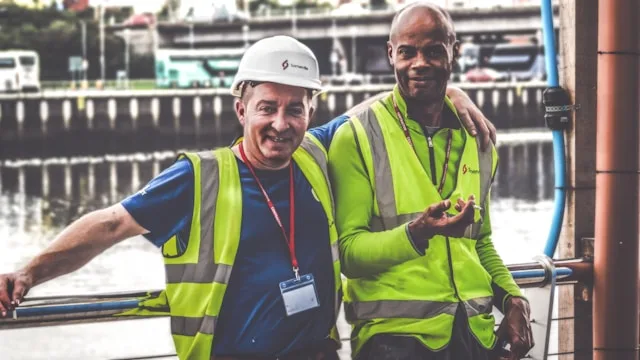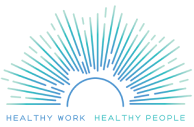Tools for Individuals:
What can be done about work stress?
As individuals, we are often told to work hard and not complain. We might hear “just be glad you have a job.” What other choices do we have? Leaving a job is not always feasible, and doesn’t guarantee a better one will be around the corner. But we also have a right to a safe and healthy workplace. Where can you start?
Collectively we often have more power than we do as individuals.
Find out what you can do about work stress step by step, by yourself and with others.
If you haven’t already, take the free, online, anonymous, Healthy Work Survey and receive a free personal report about your work stressors. You can learn here about each work stressor and what can be done.
Are you experiencing any of these symptoms of stress symptoms of stress? Even if you have found out that you have work stress but you feel well, you can still take action to prevent stress from getting worse and taking a toll on your health and well-being in the future. Explore these resources:
You are probably not alone in how you are feeling. Many others in your workplace or in similar occupations/organizations may be experiencing the same sources of stress. Talk to your co-workers and find out if the work stressors you are experiencing are shared by others. You can also read about other workers’ stories about work stress and health or share your story here.
Your union or employer may have programs and policies in place to help you cope with work-related stress, such as an Employee Assistance Program, union Membership Assistance Programs, Wellness Programs with resources such as mindfulness/meditation, walking clubs, or opportunities for community or social networking. While these tools can be helpful personally, we are always stronger when we work collectively together for improvements in working conditions.
Worker-only health & safety committees are groups of workers who are the experts at their jobs and know what hazards are causing stress and affecting their health and safety. Check out the steps to build worker power through health & safety committees from the National Council of Occupational Safety and Health.
Get informed about your rights and what unions actually do for working people. Interested in forming a union? Here’s how. Need more information on how unions benefit workers, wages and benefits and help to reduce inequality? Check out the Economic Policy Institute and their First Day Fairness campaign that aims to increase worker power and ensure job quality.
Check out these organizations and resources:
- Coworker.org allows you to start, run, and win campaigns to change your workplace. Maybe the Healthy Work Survey has given you some ideas for areas in your workplace that need improvement and how you could create healthier work? Start by creating a Coworker.org petition and talking to your coworkers about your campaign.
- Democracy at Work Institute works to expand the model of worker cooperatives in the U.S.
- Interfaith Worker Justice (IWJ) builds collective power by advancing the rights of workers.
- Jobs with Justice is committed to transforming the lives of working people.
- The National Council for Occupational Safety and Health is a federation of local and statewide “COSH” groups dedicated to advancing the rights of workers.






